
China
18:34, 05-Oct-2018
40 Elites in 40 Years: The button queen
Updated
17:36, 08-Oct-2018
CGTN
04:02
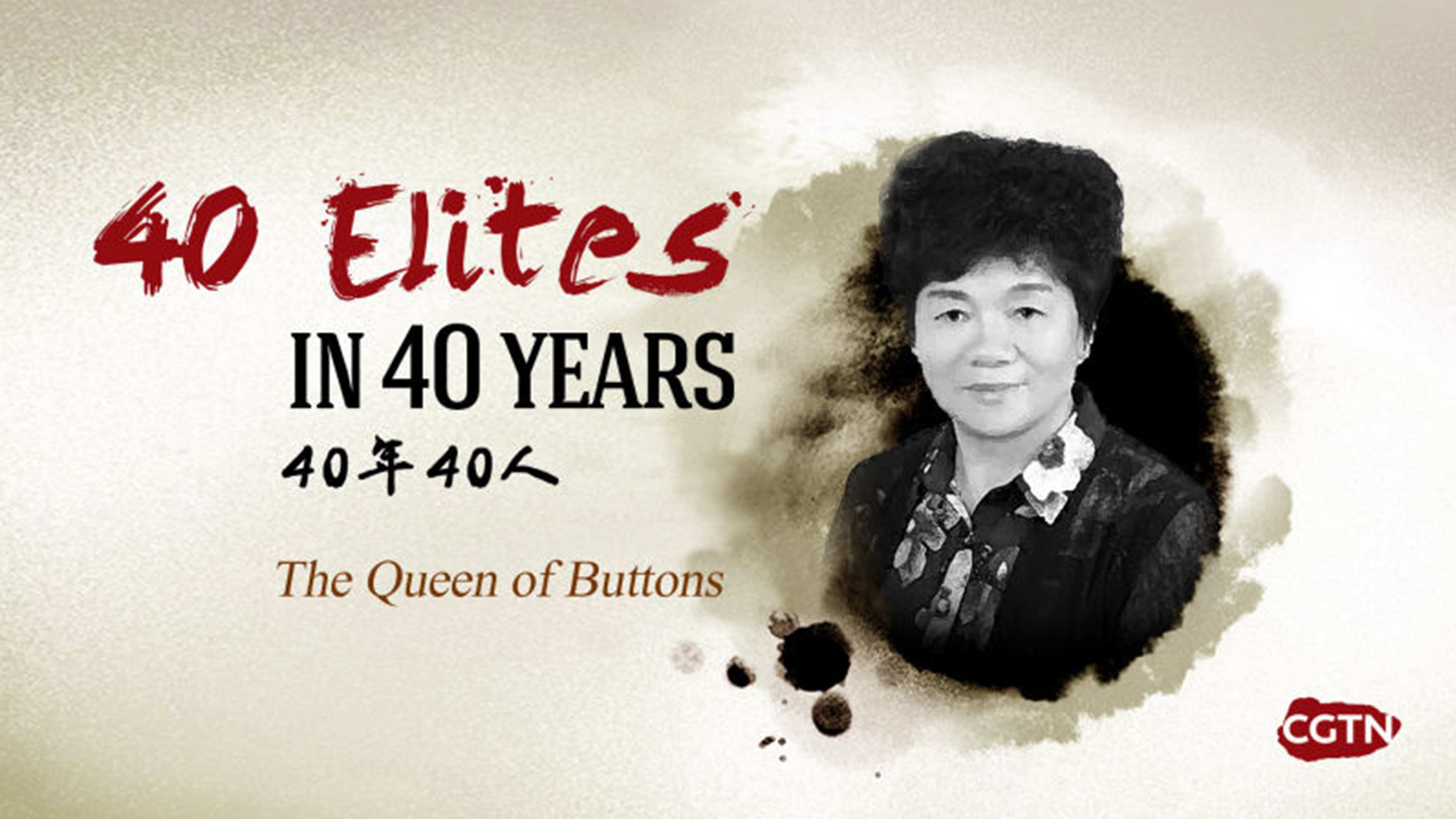
Before China's reform and opening-up in 1978, Wang Suinai's life was tough.
She lives in Qiaotou Town of Wenzhou City in Zhejiang Province. "We had a big family and little land. We could barely make ends meet by working in the fields," she recalled. "We could only earn about 100 yuan a year."
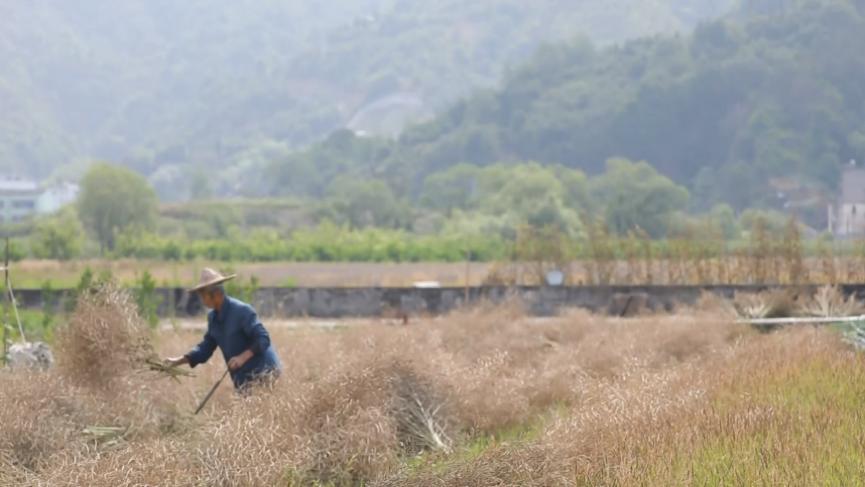
By chance, she learned that the button factories in Shanghai and Jiangsu Province were always overstocked. At that time in China, people could only buy things from state-owned trading cooperatives, shops and shopping malls. Their small sales volume contributed to overstocking in factories.
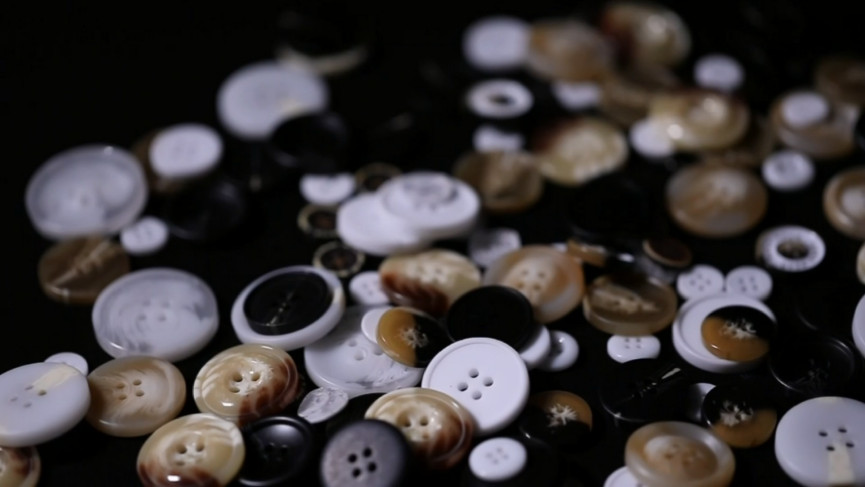
Wang thought that she could sell those buttons on the market. In order to raise capital, she borrowed money from almost all her family members and friends: "50 yuan from this one, then 50 yuan from that one… I felt so embarrassed," she said.
Finally, she accumulated 500 yuan as starting capital. It was the first time that she carried so much money with her, and the first time she went to other cities by train. She sewed the money into her belt, fearing that people might find out.
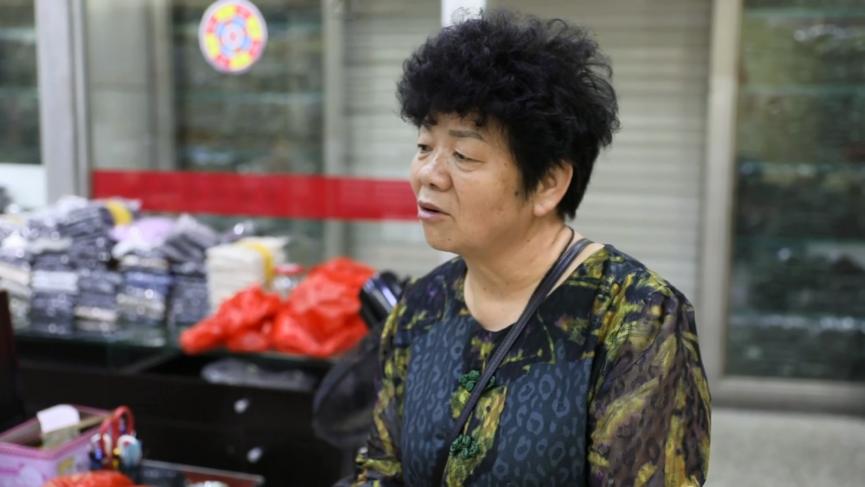
After buying buttons from the factories in Jiangsu Province, she carried the buttons, which weighed more than 50 kilograms, back to Qiaotou. She then set up a stall in the folk market beside the street and began to sell them. "The business was good. The buttons were sold out within a week. I earned 80 yuan." It was on par with her family's annual income.
"Earning money felt so good," Wang recalled, remembering how happy she was.
After reform and opening-up, people were permitted to engage in tertiary industry. Wang was 32 years old, and didn't need to fear being called a "profiteer" anymore. She soon encouraged her family to enter the business with her.
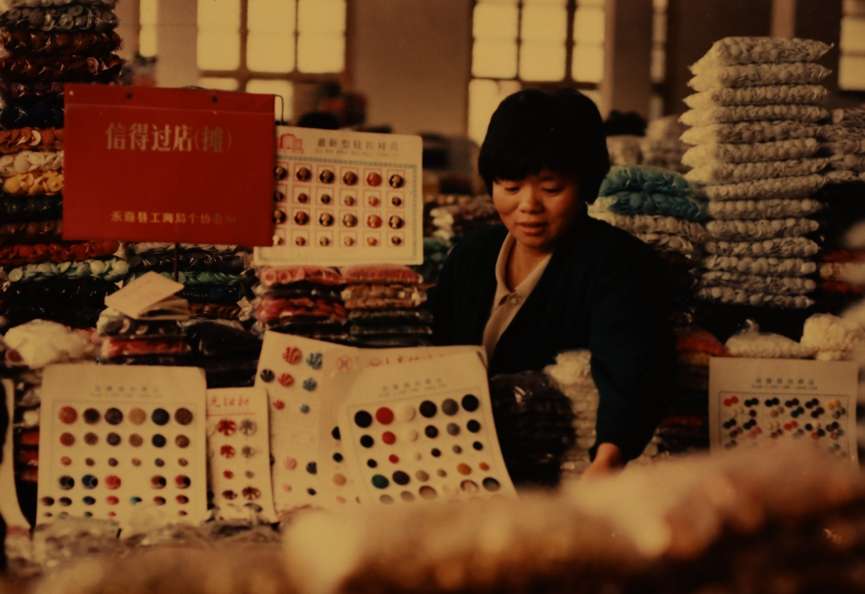
"There were only two stalls selling buttons in the beginning. Then the successful passed on their experience to friends and relatives. The business began to boom." Then the "Qiaotou Button Street" was formed, and the place later became a regional distribution center.
In 1983, a very important thing happened. For the first time, the 42 stalls on the street received a business license granted by the Industrial and Commercial Bureau. They became part of the first group of self-employed business owners in China.
In the same year, Wang was the first to rent factories and buy machines to produce buttons by herself, bringing the button business in Qiaotou to a new stage.
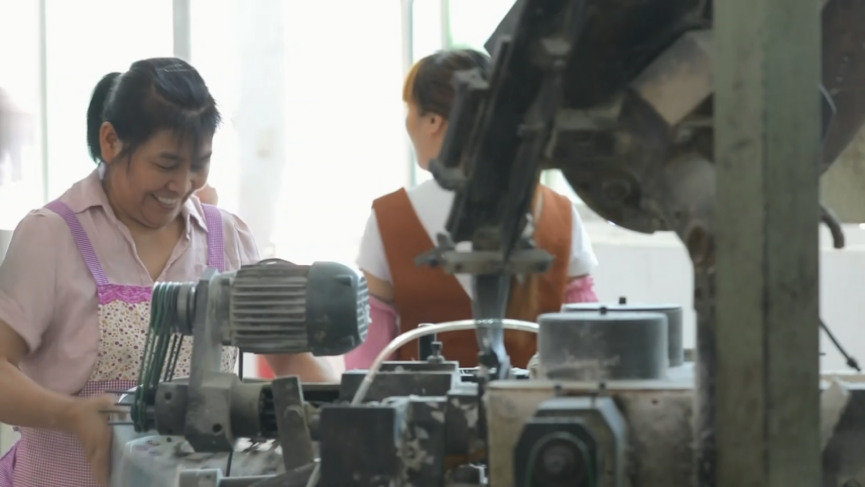
Now, her factory can produce 17 types of buttons in several thousands of colors. "Whatever the clients need, they can get it here."
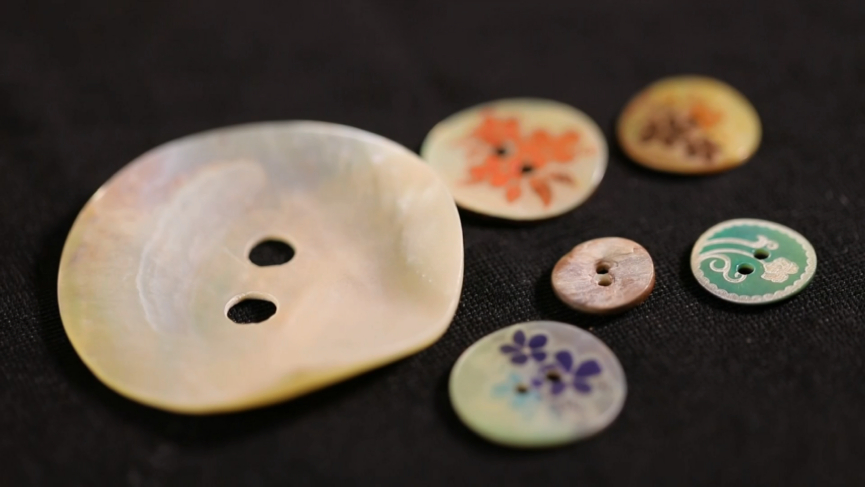
Following her path, Qiaotou gradually became the biggest producer of buttons in China, making over 90 percent of the buttons in the country. The stalls became individual shops, and locals can conduct business and work toward better lives together. All of this earned Wang the nickname of "Button Queen" in her hometown.
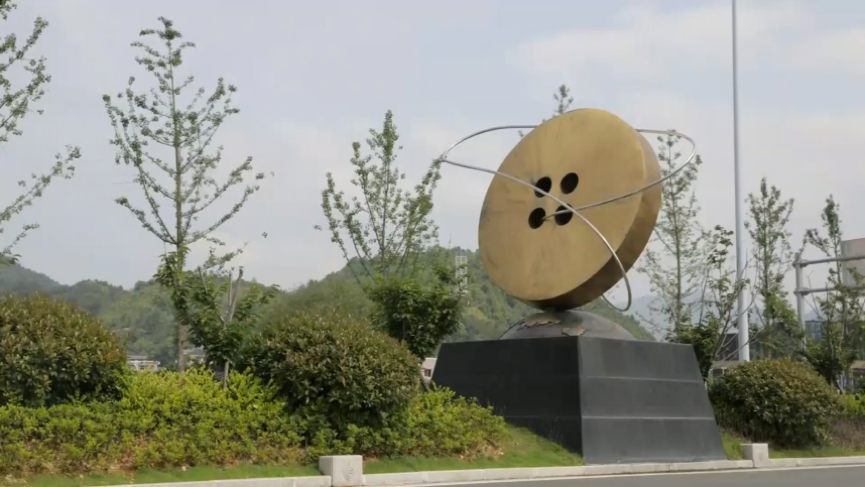
"I never thought that something as small as a button could change my life," said Wang. Although she is now enjoying her retired life at home, she still cares about the button business in Qiaotou: "I wish that the button business here could go even further."
Director: Li Wei
Editor: Ma Mingyuan, Zhou Yiqiu
Filmed by: Li Fei
Designer: Yu Peng
Article Written by: Zhu Siqi
Copy Editor: Matthew Watson
Producer: Wen Yaru
Chief Editor: Xu Jian
Supervisor: Zhang Shilei

SITEMAP
Copyright © 2018 CGTN. Beijing ICP prepared NO.16065310-3
Copyright © 2018 CGTN. Beijing ICP prepared NO.16065310-3